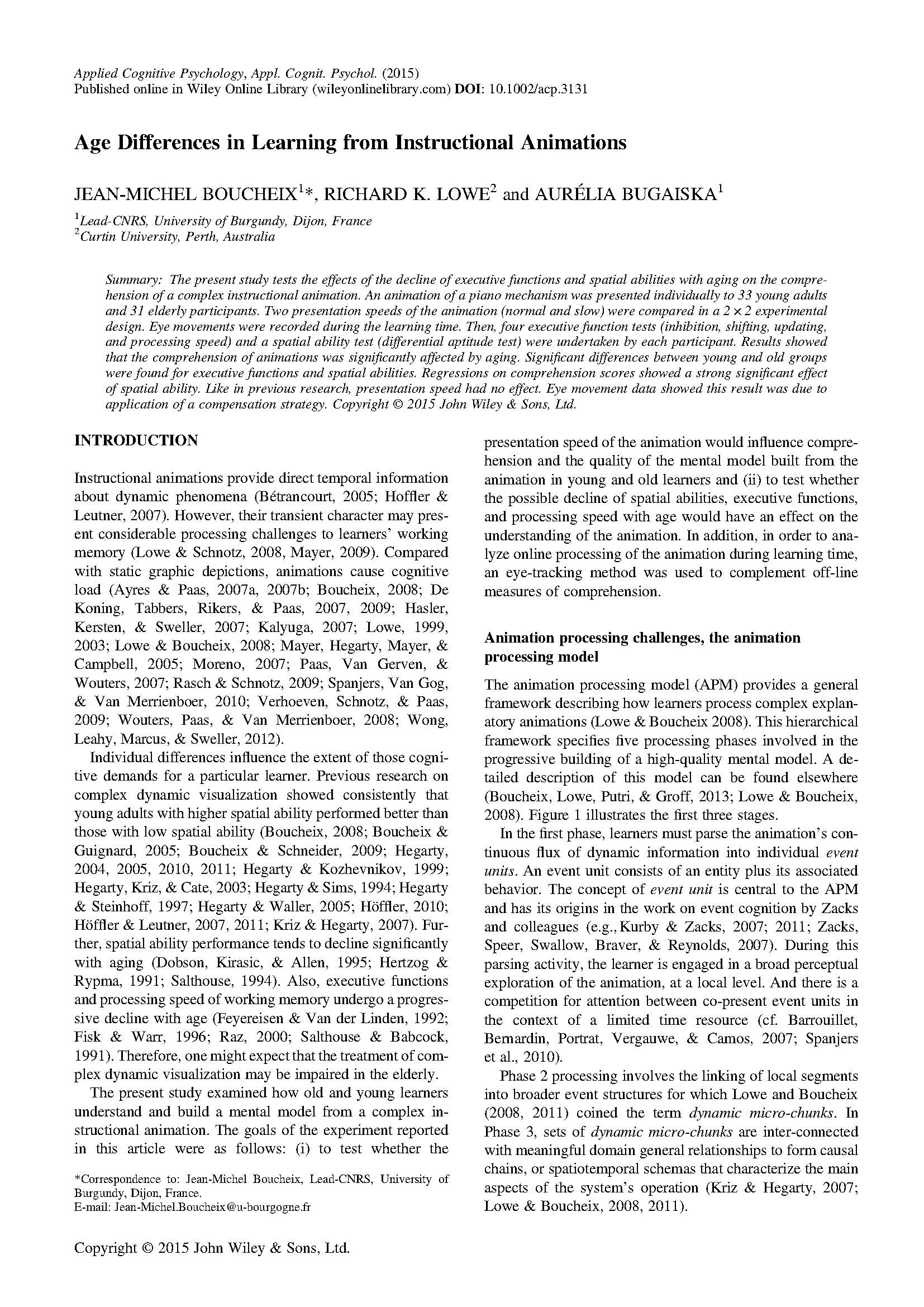The present study tests the effects of the decline of executive functions and spatial abilities with aging on the comprehension of a complex instructional animation. An animation of a piano mechanism was presented individually to 33 young adults and 31 elderly participants. Two presentation speeds of the animation (normal and slow) were compared in a 2 × 2 experimental design. Eye movements were recorded during the learning time. Then, four executive function tests (inhibition, shifting, updating, and processing speed) and a spatial ability test (differential aptitude test) were undertaken by each participant. Results showed that the comprehension of animations was significantly affected by aging. Significant differences between young and old groups were found for executive functions and spatial abilities. Regressions on comprehension scores showed a strong significant effect of spatial ability. Like in previous research, presentation speed had no effect. Eye movement data showed this result was due to application of a compensation strategy.
Age differences in learning from instructional animations
